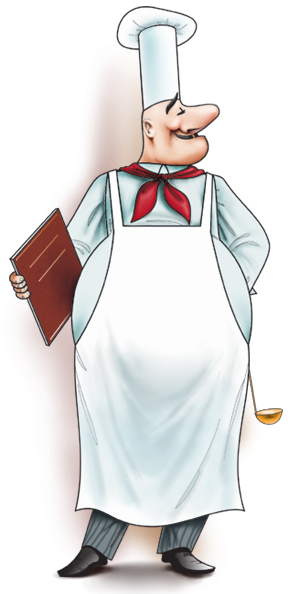
Login: |
Ingredients
650 g rye flour
350 g of wheat flour type 0
20 g sesame seeds
20 g sunflower seeds
5 g flax seeds
550 ml water
10 g salt
150 g sourdough starter (or sourdough) or replacing yeast
- This course is: Basic preparations
- Difficult to prepare: MEDIUM
- is a typical course made in: VALLE D'AOSTA
- You should drink:
- The time to prepare this course is: , and cooking time is:
Procedure
Arrange the flours in a fountain in a large bowl. Put the mother yeast refreshed (possibly at least 2-3 times) in the center, salt (avoiding direct contact with the yeast), linseed, sunflower and sesame seeds and water. Knead vigorously for at least 20 minutes. It must be a very elastic dough. Once the mixture is smooth, let rest about half an hour, then you can proceed to make some 3-fold, repeat this two or three times with an interval of 30 minutes. Put the dough in the bowl, cover and let rise until doubled in volume.
When the dough has doubled, place it on a work surface and run a few more three-fold. Then form the loaves or rolls and place them on a baking sheet lined with parchment paper, make slits with a sharp knife, let rise until doubled in volume and bake in a preheated oven at 220° C for about 20 '.
When the bread is cooked, place it on a wire rack to cool. Once cold, you can enjoy it or keep for several days.
If you do not have yeast, do not worry, this recipe has been tested with the classical leavening with yeast. The procedure is the same, you can just replace the mother yeast with the yeast.
Obviously the times are very different, you will have to adjust according to the ambient temperature and the amount of yeast you use.
Generally, are used 25 g of yeast per kg of flour, but I like to put a lot less and do a very slow rising, in this way you avoid to feel the taste of yeast in the dough ...
I tell you this recipe
The cold climate of the mountains of the Aosta Valley makes it difficult to grow wheat, and because of environmental conditions, but also due to the isolation of this territorial area, the use of wheat is very small, the dough is replaced by polenta, rice and soup made with bread.
The bread is done mainly with the rye flour, or rye. Rye (Secale cereale) is more resistant to cold and arid climates and gives some productivity in these mountainous areas.
This cereal gives to the dough and then to the bread a distinctive dark color, brown, hence the name Pan Ner (black bread). The white bread made with wheat flour was, at least in the past, primarily intended for the holiday days and at the tables of the rich.
Once, the black bread of the Valle d'Aosta was produced only few times during the year, and once cooked was placed on racks (Ratele) and was left to dry. In this way remained available throughout the year, if necessary, was then cut using a special tool the copapan, and then made to soak in water, milk or used for many typical soups of this regional cuisine.
Today you can find in the bakery daily fresh bread, it is often produced by mixing rye flour with wheat, and is frequently enriched with seeds or dried fruit, such as raisins, nuts, fennel seeds, chestnuts , dried apples.
It has been inserted Among the Agro-Products alimentai Traditional Valle d'Aosta and in several municipalities (as Aymavilles fraction Ozein Rhémes-Saint-Georges and others ..) organizes a real feast of black bread.
www.Tiraccontounaricetta.it has prepared for you the black bread using wheat flour type 0 and rye flour, were also added sunflower seeds, sesame and flax ... we used the dough to leaven that has contributed significantly to the aroma of this product. But if you have not mother yeast you can use the classic yeast, I suggest you to use a little amount of it and proceeding with a long rising.
the nutritional
100 g of bread:
Energy: 223.48 Kcal
Total Dietary Fiber: 5.49 g
Alcohol: 0.00 g
Water: 44.17 g
Total Protein: 6,39 g
Animal protein: 0.00 g
Vegetable protein: 6.39 g
Total lipids: 1.66 g
Lipids animals: 0,00 g
Plant lipids: 1.66 g
Cholesterol: 0.00 mg
Available carbohydrates: 48.88 g
Starch: 48.38 g
Sugars: 0.49 g
words to remember
Black bread, Pan Ner, Val d'Aosta, rye, Secale cereale, copapan, Ratele, sourdough, mother yeast sourdough
eBook Free - ti racconto una ricetta di Sezze
Tell a recipe to your friends
Twitter: tweet this recipe
Insert a comment
Comments
Alessandra Scrive: 07/11/2013
fantastico, io adoro il pane nero e anche la valle d'Aosta, provero' prestissimo la tua ricetta. ciao
Marco Fabio Dei Genovesi Scrive: 07/11/2013
Ciao Alessandra! ti assicuro che non te ne pentirai... facci sapere... :-) a presto
Riccardo Scrive: 07/11/2013
con la marmellata è fantastico!
Printing version of this recipe


